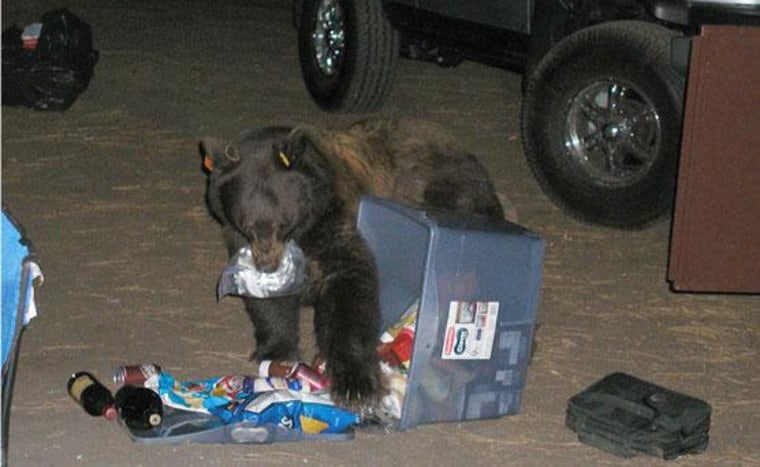Remembering to lock up everything from baby wipes to bratwurst may be irksome for Yosemite National Park visitors, but a new study finds the park's stringent food storage rules slashed the amount of human food eaten by black bears by 63 percent.
Yosemite National Park is home to hundreds of black bears — no one keeps an accurate count — only some of which seek out human food and garbage. After a record 1,584 bear incidents in 1998, park officials enacted new food storage requirements to stop bears from stealing food and garbage. These measures help prevent bear deaths and human-bear interactions, because a food-reliant bear often becomes an aggressive bear, according to the park. With more than 4 million visitors yearly, Yosemite now spends about $500,000 annually on supplies, outreach and activities meant to prevent bears from getting into human food. [ Image Gallery: Beastly Bears ]
According to the new study, which tracked the diets of nearly 200 bears by analyzing hair samples, the massive effort is working. Chemical signatures in the hair differentiate between human and wild food sources. The findings were published in the March issue of the journal Frontiers in Ecology and the Environment.
Previous research by Hopkins and his colleagues also found that stopping bears from getting that first taste of human food can break the chain of picnic-basket stealers. For example, bears that are raised by moms who snack on human food also strike out in search of campgrounds and other human sources once they're on their own.
"They carry that information with them throughout their lives," Hopkins said. And problem bears that are moved away from people eventually make their way back to their favorite food sites, another study found. The reward? Bears that eat human food are bigger and bear more cubs than those who subsist solely on their traditional diets, though they have a shorter life span. That's because they're eventually killed as a nuisance or by hunters, because the bears are near developed areas.
— Becky Oskin, Live Science
This is a condensed version of a report from LiveScience. Read the full report.
Email Becky Oskin or follow her @beckyoskin. Follow us @livescience, Facebook & Google+.
